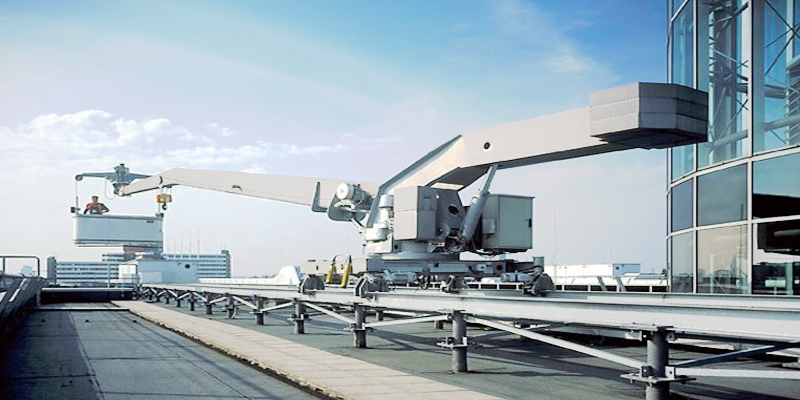Building Maintenance Units (BMUs) are essential for maintaining the exterior of high-rise buildings and ensuring safe and efficient access for cleaning and repairs. Adhering to regulations and standards is crucial to guarantee the safety of personnel and the effective operation of these systems. This blog explores the regulatory framework, key standards, and best practices for BMUs in the Philippines, highlighting the importance of compliance for building managers and service providers.
Overview of Building Maintenance Units (BMUs)
Building Maintenance Units (BMUs) are specialized systems designed to provide safe access to the exterior of buildings for maintenance tasks. They include equipment like suspended platforms, window cleaning rigs, and roof cars. In the Philippines, BMUs are commonly used in high-rise buildings to facilitate cleaning and maintenance of glass facades and other exterior surfaces. Understanding the different types of BMUs and their applications helps ensure that the right system is selected for specific building needs.
Regulatory Framework for BMUs in the Philippines
In the Philippines, BMUs must adhere to a set of regulations and standards established to ensure safety and functionality. Key regulatory bodies such as the Department of Labor and Employment (DOLE) and the Department of Public Works and Highways (DPWH) oversee compliance with these standards. Regulations cover various aspects of BMU operations, including installation, maintenance, and inspection, ensuring that all systems are safe and reliable for use.
Key Standards and Guidelines
BMUs in the Philippines are subject to both national and international standards. These standards provide detailed guidelines for the design, installation, and maintenance of BMUs. The National Building Code of the Philippines and relevant international standards such as those from the International Organization for Standardization (ISO) outline the requirements for BMU systems. Adhering to these guidelines helps ensure that BMUs are safe, durable, and effective in their intended applications.
Compliance with Safety Regulations
Safety compliance is paramount for BMUs to prevent accidents and ensure the well-being of maintenance personnel. Common safety requirements include regular inspections, proper training for operators, and adherence to manufacturer guidelines. Implementing best practices such as routine maintenance checks and ensuring that safety features are functional can help mitigate risks and ensure compliance with safety regulations.
Impact of Regulations on BMU Design and Operation
Regulations significantly influence the design and operation of BMUs. Compliance with these standards affects how BMUs are designed to handle specific tasks and environmental conditions. For example, regulations may dictate the load capacities, materials used, and safety features required for BMUs. Case studies of successful BMU installations in the Philippines demonstrate how adherence to regulations enhances safety and operational efficiency.
Challenges and Solutions in Adhering to Regulations
Property managers and service providers often face challenges in meeting BMU regulations, such as staying updated with evolving standards and managing compliance across multiple sites. Solutions include regular training for staff, consulting with experts, and conducting thorough audits to ensure adherence. Implementing these strategies can help overcome challenges and maintain compliance effectively.
The Role of 828 Cable System and FBA Gomyl in Compliance
828 Cable System, in collaboration with FBA Gomyl, offers a range of services designed to support compliance with BMU regulations and standards. Their expertise in engineering, production, and advisory services ensures that BMUs are designed, installed, and maintained according to the highest standards. By partnering with these companies, property managers can benefit from their extensive experience and commitment to quality, ensuring that BMUs meet all regulatory requirements.
Future Trends and Updates in BMU Regulations
The regulatory landscape for BMUs is continually evolving, with new trends and updates emerging regularly. Future developments may include stricter safety requirements, advancements in technology, and changes in design standards. Staying informed about these trends and updates is crucial for maintaining compliance and ensuring that BMUs remain safe and effective in their operations.
Takeaway
Understanding and adhering to regulations and standards for Building Maintenance Units is essential for ensuring safety and efficiency in building maintenance operations. By staying informed and consulting with experts, property managers and service providers can navigate the complexities of BMU regulations and maintain high standards of safety and performance.

